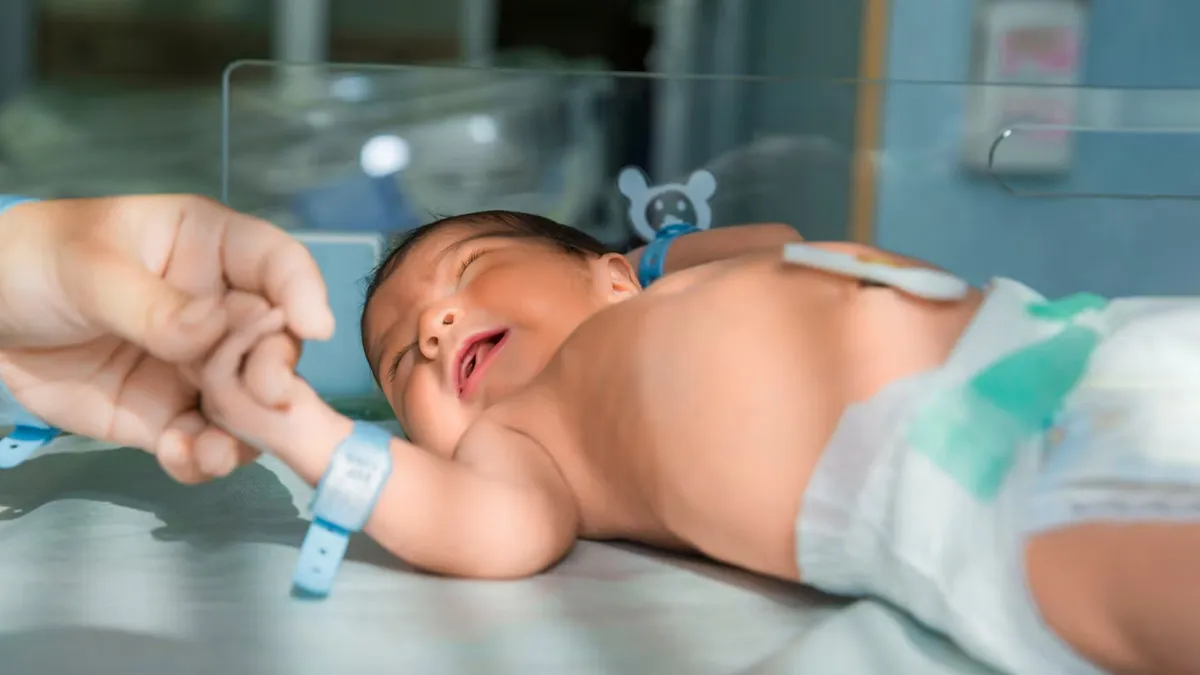
Beyond Popularity, Question Lies: Are IVF Babies Healthy As Ones Conceived Naturally? Fertility Specialist Explains
IVF or In Vitro Fertilization has now become a go-to option for couples in India wishing to expand their families. The exponential growth of IVF centers across the country stands as testimony to the fact that the stigma and fear attached to the process is long gone. Sample this: In 2000, only 5500 cycles of IVF-ICSI (In Vitro Fertilization and Intracytoplasmic Sperm Injection) were performed in India. This rose to 21,500 in 2006 and 2-2.5 lakh in 2024. However, beyond all the popularity, doubt still lurks around whether IVF babies are as healthy as ones conceived naturally. Dr Shilpa Saple, director at Surya Fertility Clinics, helps clarify that.
Are IVF Babies Healthy? Fertility Specialist Explains
"IVF is a time-tested procedure and the first IVF baby is all of 46 years old (now). It has helped countless couples achieve their dream of parenthood," says Dr Saple.
She guarantees that IVF babies are as healthy as those that are conceived naturally. "There are no health concerns just because the child was conceived in a lab," the doctor adds.
Who Should Consider IVF And Why?
Dr Saple explains that IVF is a good option for women who are 37 and older as in that age bracket, the risk of abnormalities in a foetus is high through natural conception. "Most often the patients undergoing IVF treatment are older and the risk of abnormality is high after the age of 37 in the case of women. Hence from this, we can conclude that the population of patients undergoing IVF is elderly who have a high incidence of abnormalities," she points out.
1
2
3
4
IVF also helps those get pregnant who have issues like fibroids and endometriosis as these gynaecological issues usually impede the process of conception and growth of the foetus. "Having an abnormal uterus has a negative effect on the support of pregnancy. However, some medications to reduce the inflammation can be given beforehand," Dr Saple elaborates.
Don't Miss: World IVF Day 2024: What You Should Know Ahead Of Your IVF Journey
Apart from these, the fertility treatment also serves those women well who have high blood pressure before the process. "If the woman has high blood pressure before IVF treatment, the blood supply to the baby gets compromised, especially in the 3rd trimester. That's when issues like poor blood to baby or growth restriction start," the fertility expert highlights.
Those who are diabetic will benefit from IVF as well. "Pregnancy is a diabetogenic condition, meaning it can reduce tolerance of sugars in women. Those having borderline diabetes tend to become overt-diabetic (the most advanced stage of the disease) in pregnancy. Diabetes with pregnancy is complicated with increased abnormality in the baby, high risk of miscarriages and preterm baby delivery," she says.
Studies suggest that diabetic women, if they undergo IVF, may stand at a slightly higher risk of complications, such as multiple pregnancies, miscarriage, and gestational diabetes. However, with effective management and monitoring, the risks can be minimised and success rates maximised.
"Advancements in reproductive medicine have greatly improved the safety and success of IVF and the babies develop just like naturally conceived children," Dr Shilpa Saple wraps up.
Don't Miss: IVF Myths And Facts: Expert Addresses Common Misconceptions
If you liked the story, please share it. For more such stories, stay tuned to HerZindagi.
1
2
3
4